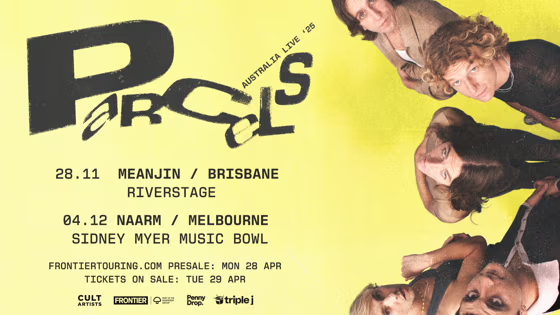The Saudi Film Commission brought Saudi Film Nights to Australia this June, with screenings in Sydney and Melbourne. The initiative started in Morocco in April, hosting audiences in Casablanca and Rabat, and after Australia, the Saudi Film Nights train will carry on to China and India, finishing in Mexico in January. More that 20 Saudi feature and short films that have already been shown at local and international film festivals are being shown over the whole tour, many of which have garnered accolades and reviews and discussions from the industry, as well as movie-goers and academics and artists.
This round-the-world odyssey is actually a second edition, the first being held last year in four French cities when five films were screened. It’s evidence of the not only the growth and potential of the Saudi film industry, but its commitment to finding its audiences and being taken seriously on the world stage.
As Film Commission CEO Eng. Abdullah Al-Qahtani said: “The Saudi Film Nights reflects our commitment to enhancing cinema culture in the Kingdom, and highlights the potential of Saudi films in attracting international audiences.”





Saudi Vision 2030 is the government program first announced in April 2016, an ambitious roadmap for economic diversification, global engagement, and enhanced quality of life in the Kingdom. The world is moving, from energy and technological to environmental changes which are going to make societal- levels differences to the way we live, and Saudi Arabia is planning to tackle them all on the front foot, in line with the vision of Saudi Crown Prince and Prime Minister Mohammed bin Salman. Cultural diversification is part of that plan, and as well as the easing of restrictions in the country, new opportunities are rapidly sprouting up for careers in the arts, including in film.
As the Saudi filmmaker, producer, actor and editor Majed Samman told Irresistible, “It’s booming.” The ‘soft power’ of film is not lost on the Saudis, and at The King Abdulaziz Center for World Culture, or Ithra, where Salman is the Head of Performing Arts & Cinema and oversees Ithra Film Production, he told us the aim is to, “Elevate the abilities and dreams of those in the country with talent, teaching them skills in the Kingdom and also sending people out, typically to the USA and the UK, for further training.” He wants Saudis to “Tell our own stories and tell them well. If we can get it right, the sky’s the limit.”




Each Saudi Film Nights event invites players from the local film and media industries to make connections, dream up future projects, and put the Kingdom of Saudi Arabia firmly on the film world map, and the Sydney edition was no exception. It helps that Majed Samman has spent significant chunks of his career working with Australians both in the past and now, “They’re the best.” he told Irresistible. He’s keen to replicate the positive collaborations he’s currently having with the Australian theatre sector, with the film industry. Through the Ithra Film Production Initiative, Samman has overseen the production of over 20 films, short and feature, that have been premiered across local and international festivals, so it’s good news that meetings with filmmakers in Sydney went well. “I thought,” he said, “they’ve got some cool ideas, let’s work together.”
Reflecting on the nomadic nature of the Saudi Film Nights Tour, it was fitting that the feature we were offered in Sydney was a movie about a camel. Hajjan is produced by Samman and Egyptian Mohammad Hefzy, the influential founder of Film Clinic, as well as Jordan’s Rula Nasser through her The Imaginarium Films. Hajjan is directed by Abu Bakr Shawky, the Egyptian-Austrian writer and director who’s short documentary The Colony was awarded at festivals around the world. Shawky’s debut feature Yomeddine, premiered in the Main Competition of the Cannes Film Festival, won the Francois Chalais Award, and was nominated for the Palme d’Or. Hajjan is his second feature film. The film has an original score by the multi- award winning Tunisian composer Amine Bouhafa, who this year won Best Music Award for the Hajjan score at the 8th edition of the Critics Awards for Arab Films, which is held on the sidelines of the Cannes Film Festival.




Hajjan is a coming-of-age-story, an adventure, and a fascinating insight into the high stakes and exotic world of camel racing, exploring the deep bonds that exist between the culturally revered camels, and the people that ride, own and trade them. It features the stunning landscapes of the Red Sea Coast Tabuk region in Northwest Saudia Arabia, so now that tourism is possible, it’s a holiday inspiration as well.
The film was well received when it premiered at Toronto International Film Festival. It has since been chosen as the closing film of the Malmo Arab Film Festival and been selected for a number of other festivals. In Australia it is currently streaming on SBS.
Young star Omar Al-Atwi plays Matar, a jockey with the odds stacked against him, who is not only from the region, but has been handling and riding camels himself since he was 7 years old, a skill set that is clearly evident in the film. Alshaima Tayeb looks fantastic with traditional tribal tattoos and does what she can to cut into the mainly male-driven dialogue, although at the end there’s a huge won for women’s freedom from another jockey played by Toleen Barbood.
The well known Saudi actor, producer and poet Ibrahim Alhasawi, who is a bit of an icon back home, has a charming turn as camel owner Abed. Alhasawi was in Sydney for the viewing, and as he told Irresistible, “it’s an exciting time for stories from Saudi Arabia.” He added, “Since the 2030 vision was created, everything has improved, especially for future generations. Film is a core part of the vision and the progress we are making. Saudi is just on the up and up, and it’s so exciting to see our own people writing, producing, directing, acting, and the work being shown and awarded at home and at international festivals. It’s a brilliant time,” He has a new movie coming out next year, also filmed in Saudi Arabia, To My Son, directed by the Tunisian filmmaker Dhafer L’Abidine.




The short film Me & Aydarous was also presented on the night. This is a directorial debut from Sara Balghonaim, a Saudi filmmaker with a Masters in Fine Arts in Film and Television production from New York University. As well as showing at Saudi festivals it premiered internationally at Aspen Film Festivals Shortsfest, and has shown at Palm Springs and Hamptons International Film Festivals amongst others. It has won a Wasserman Award. Balghonaim also previously produced Sweet Refuge, starring Laith Nakli, which won the DGA Student Award.





The film is set in 2004 and follows the romantic adventures of a young woman Jude, and her disapproving driver. It is based on the real experiences of the director and features Ida Al-Kusay as the lead in the film, Sudanese poet Ballah Momhammed Alfadhel as the driver Aydarous who’s trying to look out for his charge, and Saleh Alshirian as Faisal the love- interest.
Al-Kusay is a Saudi actor who has worked in film, series, and theater. She has a degree in Clinical Psychology from KSU in Riyadh, and double-majored in Marketing and Sign Language from Emerson college between Boston and LA. She wrote her first play “Iris Blooms” when she was 18 years old, which was the first step encouraging her to enter the acting scene. Her acting career started in 2019 by landing a lead role in the feature film “Junoon”, for which she was nominated for “Best Actress in a Feature Film” at the London Film Festival. She is one of the first Saudis to receive professional training in swords, spears, horse riding, fire, and wirework.
She was in town for Sydney Saudi Film Nights, and as she told Irresistible, “Passion for filmmaking has been going on in Saudi Arabia for a long, long time. We have just found the light to shed on it. Job opportunities and scholarships and having the outlets gives us the opportunities to be in our own films. Shooting for Saudi feels amazing.” She has two more features in production at the moment. She hopes to one day play “A Saudi woman in an international film. To really show my country and my culture. That would be so cool.”


The energy in the industry is a huge leap for a country that only submitted a film for the Academy Award for Best International Feature film in 2013. That film was Wadjda, directed by Haifa al- Mansour, who has mentored Sara Balghonaim. It was met with huge acclaim throughout the world, and earned a nomination for Best Foreign Film at the 2014 BAFTAs. Barakah meets Barakah was another enormous success in 2016 selected as the Saudia Arabian entry for the Academy Awards, and premiering at Berlinale and winning the Prize of the Ecumenical Jury. These and the other creative outputs over the years were extraordinary considering movies theatres were closed from 1983 to 2018, Things are only heading in one direction now though, and the government hopes that by 2030, Saudi Arabia will have more than 300 theatres with over 2,000 movie screens. With the access and the funding and the training and the scholarships, it will be very exciting to see what the Kingdom of Saudi Arabia will now be able to produce.
One name that comes up over and over again when explaining the huge leaps in the Saudi film industry is Faisal Baltyuor. He runs CineWaves Films, the leading production and distribution company in Saudi Arabia. He’s also CEO of Muvi Studios, the production arm of top Saudi exhibitor Muvi Cinemas, and a board member of Manga Productions, an animation and video-game specialist and a subsidiary of Saudi Crown Prince and Prime Minister Mohammed bin Salman’s Misk Foundation, as well as the founder of CineHouse, the first dedicated arthouse cinema in Riyadh. He was previously the first CEO of the Saudi Film Council, which is now the Saudi Film Commission, and he was also the head of Ithra. We won’t even get into how under his watch were not only thousands of students sponsored to study filmmaking at home and abroad, but that Saudi also made its debut at Cannes 2018 with its first pavilion at the festival. He’s producing movies that are sitting at the top of the charts on Netflix and he’s connected to films all across the Middle East, not just in Saudi. To sum up, he’s in charge. And he has a soft spot for Australia. He spent seven years here, studying for both his Bachelors and Masters and working in production, and he told us he’s not just back for Saudi Film Nights to get his hands on his favourite Aussie coffee. “I see the importance of cultural and cinematic exchange between Saudi and Australia. Great movies are made in Australia and there is a lot of expertise. A number of Australian production and executive talent also works in Saudi, such as Wayne Borg at Neom Media, and Adon Quinn at Muvi Cinemas. We collaborate well together. And yes, of course I do have my favourite coffee shops here.”


When Irresistible asked Baltyuor if everyone back home is as ready as he is to open up, he told us, “It’s such a big part of our culture, of our souls. We love to welcome people, host them, help them and exchange with them. Today Saudi is open all over, welcoming everybody in a very strategic way. Anybody who comes loves it. We are a hidden treasure,’ He added, “The world now needs to hear our stories, local and authentic stories, that have been hidden for a long time. I’m asked all the time to do an adaptation of a foreign film. This is not the time for adaptations. Today I want to have a very strong story of our culture. This is what will travel and go beyond Saudi Arabia, to the film festivals, to the world.” If anyone’s going to make it happen, we’re putting our money on Faisal Baltyuor.










